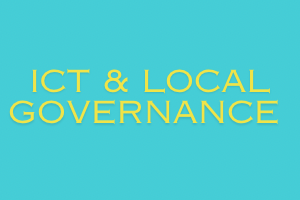Digital Transformation in Zimbabwe: The Role of ICT in Local Governance

In the digital age, Information and Communication Technology (ICT) has become a pivotal tool for governance worldwide. Zimbabwe, no exception, is leveraging ICT to transform its local governance. Therefore, enhancing service delivery and citizen engagement. This article explores the impact of ICT on Zimbabwe’s local governance, highlighting how digital transformation is reshaping the way local authorities interact with citizens.
The Emergence of Digital Governance in Zimbabwe
Furthermore, the advent of digital governance in Zimbabwe marks a significant shift in how local authorities operate. Traditionally, governance was characterized by face-to-face interactions and manual processes. However, the integration of ICT has introduced new avenues for service delivery and citizen engagement. Local governments are now utilising digital platforms to streamline operations, improve transparency and foster a more interactive relationship with citizens.
Enhancing Service Delivery using Digital Governance in Zimbabwe
Also, one of the most notable impacts of ICT in Zimbabwe’s local governance is the enhancement of service delivery. Through digital platforms, local authorities can now provide services more efficiently and effectively. For instance, online portals allow citizens to access information about public services, apply for permits, and report issues in real-time. This not only improves the quality of service but also reduces the time citizens spend waiting for responses.
Improving Citizen Engagement
The use of ICT has also significantly improved citizen engagement in Zimbabwe’s local governance. Digital platforms enable local authorities to communicate with citizens more effectively, fostering a sense of community and involvement. Social media platforms, for example, are in use. Local governments use them to share updates, gather feedback and address citizen concerns. Moreover, this increased engagement has led to a more responsive and accountable local government system. Governance activities of Harare, Kadoma, Mutare and Bulawayo for example, is frequently shared on Facebook. Furthermore, the local authorities of these cities post updates on current events under their purview.
Challenges and Opportunities
Despite the significant strides made in digital transformation, Zimbabwe’s local governance faces several challenges. These include the digital divide, where access to ICT is limited in some areas, and the need for digital literacy among citizens. However, these challenges also present opportunities for further innovation and improvement. By addressing these issues, Zimbabwe can fully leverage ICT to enhance local governance and improve the lives of its citizens.
Conclusion
The role of ICT in Zimbabwe’s local governance is transformative. By enhancing service delivery and citizen engagement, ICT is reshaping the way local authorities operate. As Zimbabwe continues to embrace digital transformation, it is poised to become a leader in local governance. The journey is ongoing, but the potential benefits for Zimbabwe’s citizens are immense.
In the digital age, ICT is not just a tool; it is a catalyst for change. As Zimbabwe navigates this digital transformation, it is clear that the future of local governance is bright, thanks to the power of ICT.





